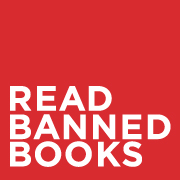Why You Should Support Freedom of Information
 I was having a casual conversation the other day with a client about censorship in his home country of China. He told me that among many, many things banned in the communist country, he said that he had never heard of Alice in Wonderland until he moved to England to attend college. The Hunan province in China actually banned the classic children’s book because “animals should not use human language, and that it was disastrous to put animals and human beings on the same level.”
I was having a casual conversation the other day with a client about censorship in his home country of China. He told me that among many, many things banned in the communist country, he said that he had never heard of Alice in Wonderland until he moved to England to attend college. The Hunan province in China actually banned the classic children’s book because “animals should not use human language, and that it was disastrous to put animals and human beings on the same level.”
My first thought was to go into my usual rant about how oppressive China is and how free and lucky I am to be in the United States. And, trust me, America does a better job of supporting free speech than most other countries in the world. However, even in the land of the free, this country has its own censorship issues.
This is why we still need Banned Books Week.
This week free speech advocates are highlighting books that have been challenged or banned in schools and public libraries around the United States. The goal is to expose readers to literature that present different ideas and perspectives, even if those ideas and perspectives are contrary to their own beliefs.
According to the American Library Association, there were 311 reported attempts to remove or restrict materials from school curricula and library bookshelves during the 2014-2015 school year. As a journalist, author, blogger and publisher, I have always been a strong supporter of free expression. Furthermore, exploring literature from different perspectives give us a more well-rounded understanding of the world and it makes us better people.
Here is a list of the top 10 books that were challenged or banned in 2014. I hope you will choose to read one or more of them!
1) “The Absolutely True Diary of a Part-Time Indian,” by Sherman Alexie
Reasons: anti-family, cultural insensitivity, drugs/alcohol/smoking, gambling, offensive language, sex education, sexually explicit, unsuited for age group, violence. Additional reasons: “depictions of bullying”
2) “Persepolis,” by Marjane Satrapi
Reasons: gambling, offensive language, political viewpoint. Additional reasons: “politically, racially, and socially offensive,” “graphic depictions”
3) “And Tango Makes Three,” Justin Richardson and Peter Parnell
Reasons: Anti-family, homosexuality, political viewpoint, religious viewpoint, unsuited for age group. Additional reasons: “promotes the homosexual agenda”
4) “The Bluest Eye,” by Toni Morrison
Reasons: Sexually explicit, unsuited for age group. Additional reasons: “contains controversial issues”
5) “It’s Perfectly Normal,” by Robie Harris
Reasons: Nudity, sex education, sexually explicit, unsuited to age group. Additional reasons: “alleges it child pornography”
6) “Saga,” by Brian Vaughan and Fiona Staples
Reasons: Anti-Family, nudity, offensive language, sexually explicit, and unsuited for age group. Additional reasons:
7) “The Kite Runner,” by Khaled Hosseini
Reasons: Offensive language, unsuited to age group, violence
8) “The Perks of Being a Wallflower,” by Stephen Chbosky
Reasons: drugs/alcohol/smoking, homosexuality, offensive language, sexually explicit, unsuited for age group. Additional reasons: “date rape and masturbation”
9) “A Stolen Life,” Jaycee Dugard
Reasons: drugs/alcohol/smoking, offensive language, sexually explicit, and unsuited for age group
10) “Drama,” by Raina Telgemeier
Reasons: sexually explicit
There are dozens of other books that have been banned or challenged over the last two decades. You can find the full lists here.
Learn more about Banned Books Week here.